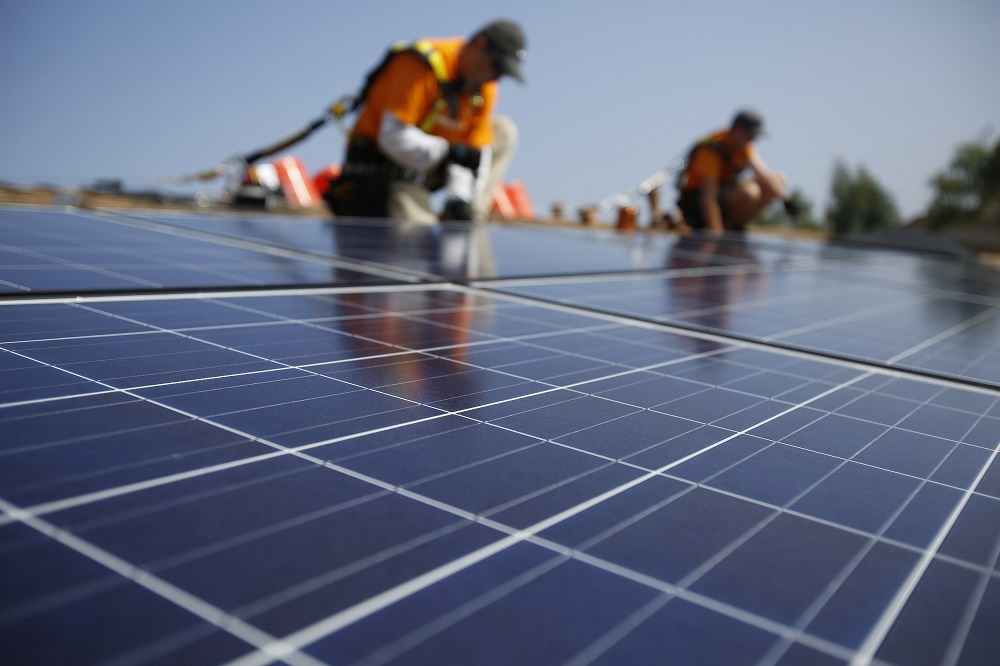Opening access to suitable energy sources
Resolution 70-NQ/TW allows enterprises to pick an electrical supplier that best meets their needs rather than relying on a single one.

Mobilizing social capital for electricity storage projects can assist in better balancing power supply and demand in the face of intermittent renewable energy sources.
The Politburo's Resolution 70-NQ/TW on ensuring national energy security until 2030, with a vision to 2045, was recently issued, contributing to the perfecting of infrastructure for the development of high-tech industries while opening up opportunities to restructure Vietnam's electricity market.
Manufacturing, processing, and high-tech industries are drawing more foreign direct investment. When choosing Vietnam as a manufacturing base in the trend of moving supply chains, one of the main concerns for investors is infrastructure, including energy infrastructure, particularly renewable energy.
The manufacturing industry, which includes the electronics industry, is vital to industrial production development and contributes significantly to export growth. However, according to Ms. Do Thi Thuy Huong, a member of the Vietnam Electronics Business Association's Executive Committee, the electronics sector faces several structural impediments. One of the disadvantages is unsynchronized infrastructure, such as logistical congestion and a lack of consistent energy, which raises company production costs.
In the backdrop of significant technical development and high-tech expansion, securing energy infrastructure is an absolute must. Furthermore, to meet high economic growth objectives between 2026 and 2030, growth resources must be managed and planned more effectively.
Energy, particularly green and clean energy, is a fundamental and crucial resource. According to estimations, the demand for power to satisfy urgent development targets has to rise by 12–16% every year.
Ms. Do Thi Thuy Huong praised the Politburo's Resolution 70/NQ-TW, which prioritized customers in the power market. Enterprises are allowed the freedom to pick the electrical source that best meets their needs. With more alternatives, the electricity market becomes more competitive, lowering energy costs and boosting service quality.
Dr. Nguyen Xuan Quang of the Institute of Energy Technology at Hanoi University of Science and Technology believes that Resolution 70/NQ-TW's breakthrough direction creates potential to reorganize Vietnam's electricity market, which has traditionally been monopolized.
"For many years, the Vietnamese energy market has worked under a centralized wholesale structure, in which EVN serves as the 'single buyer' from power facilities and subsequently distributes to customers. While this system is simple to operate, it restricts customers' freedom of choice by activating processes for requesting and granting powers,” said Dr. Nguyen Xuan Quang.
As a result, Resolution 70/NQ-TW highlights the need to increase the competitiveness and transparency of the Vietnamese electricity market, expressing a commitment to reforming this market by treating energy as a distinct commodity according to the law of supply and demand. Power plants will sell energy directly to major consumers, who will be able to pick their own power providers, stimulating the electrical market to enhance service quality, optimize prices, and encourage new investment.
Moving on to more pressing energy challenges, Resolution 70/NQ-TW continues to emphasize developing renewable energy and encouraging the private sector to invest in energy storage facilities such as storage batteries, LNG warehouses, petroleum warehouses, and so on.
This is an unavoidable need given the rising use of renewable energy. Battery projects store extra electricity and generate it during peak hours, which helps to stabilize the power grid. Mobilizing social capital for electricity storage projects can assist in better balancing power supply and demand in the face of intermittent renewable energy sources.
Furthermore, with the public-private partnership model, increasing private engagement in LNG and petroleum depots is strategically important. With socialized power resources, it will help to grow the national energy reserve system in terms of scale and technology, decreasing reliance on budget capital and encouraging healthy competition. This approach is consistent with international trends aimed at protecting the public's interests while using market power.








